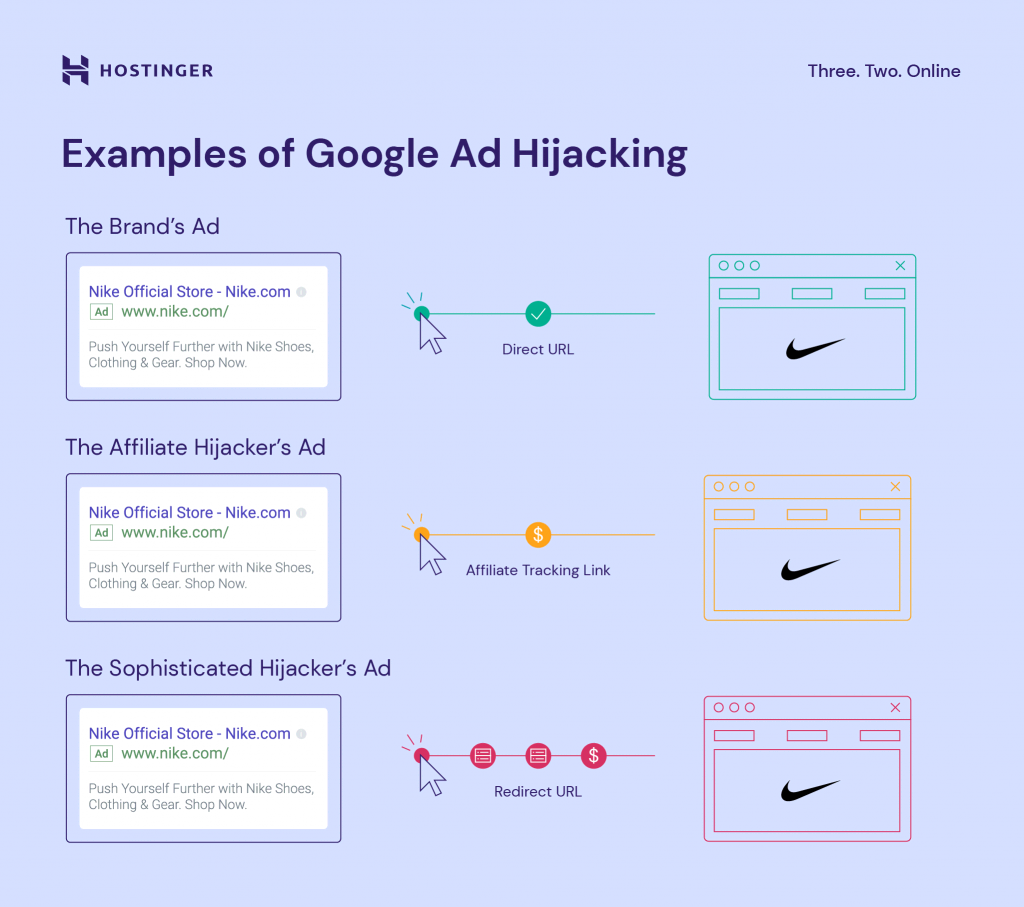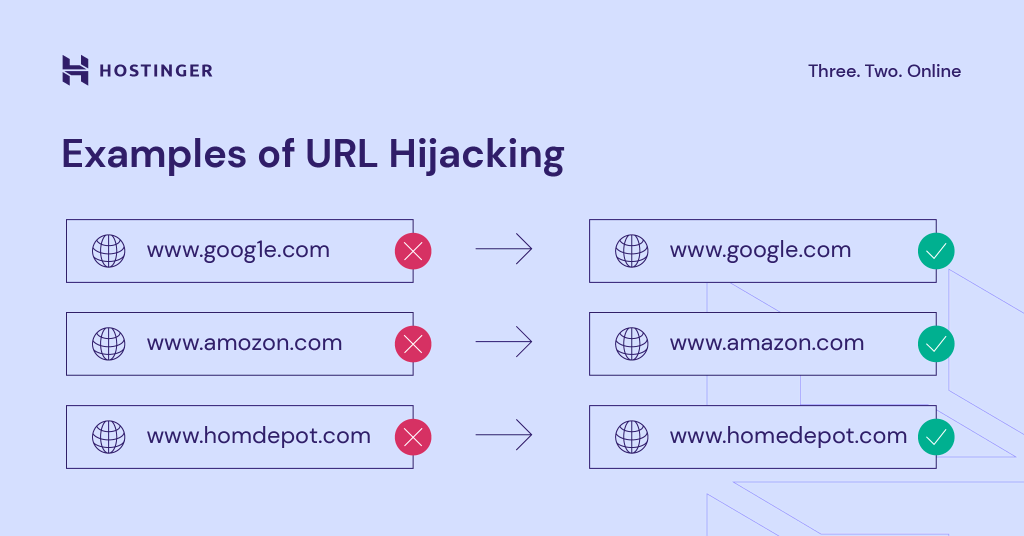10 Most Common Affiliate Marketing Scams + How to Avoid Them

Affiliate marketing is growing significantly and is estimated to be worth $12 billion globally. As a result, brands and retailers are investing more in affiliate marketing programs, making it an excellent opportunity to earn passive income.
However, before becoming an affiliate or hiring one, you should be aware of affiliate marketing scams. To identify affiliate fraud, you need to know what it is and how it can affect your online business.
In this article, you will learn about the most common types of affiliate marketing scams, how they work, and tips to avoid them.

How Common Are Affiliate Scams
Affiliate marketing is particularly popular with those just starting their online businesses since it requires little to no budget, and brands pay high commission rates.
Unfortunately, the affiliate marketing system also attracts fraudsters. Research shows that worldwide digital ad fraud loss will grow from $35 billion to $100 billion between 2018 and 2023, making digital ad fraud a threat to the affiliate marketing industry.
There are affiliate scams in different types of businesses, and they’re only becoming more common since they’re hard to identify. You can spot these fraudulent activities on the browser’s search engine results, social media platforms, YouTube, and website ads. As for companies, it’s essential to monitor your online marketing campaign as scammers will target this channel. Therefore, it’s important to know what kind of fraud activities you should be aware of and how to avoid them.
To help you better understand, we will cover affiliate scams that can affect your business from the affiliate marketer and company side.
5 Most Common Affiliate Marketing Scams That Hurt Affiliate Marketers
As an affiliate partner, you need to be aware of possible scams that can damage your business and lead to revenue loss. Here is the list of the most common fraudulent activities to identify.
Cookie Stuffing
Cookie stuffing or cookie dropping is an affiliate fraud where scammers place tracking codes from various affiliate networks on a visitor’s computer. When a visitor clicks the link and purchases a product on the advertiser’s site, the scammers will earn a commission.
Fake Products
A fake product scam involves creating ads or a page for a product that doesn’t exist. Scammers will promote the product under the name of a well-established brand to gain potential customers’ trust.
Get-Rich-Quick Schemes
With this fraud scheme, scammers use overpromising ads to convince people that it is possible to make big money quickly with little effort. This clickbait scam usually attracts new affiliate marketers, and it can lead to fake affiliate clicks or private data breaches that will benefit scammers.
Pay-to-Join Programs
Pay-to-Join is another common affiliate scam that asks for payment through a credit card or PayPal to join an affiliate program. Most trusted affiliate marketing programs are free, so beware of this type of fraud to avoid your sensitive information being stolen online.
Spoof Traffic
Spoof traffic is an affiliate scam where fraudsters send false click and impression data, including bots and junk, to make it look valid. Commonly, you can find this scam in Pay-Per-Click (PPC) affiliate programs.
The marketing analytics program will then show many referrals to the retailer’s site when it’s all just bots, enabling scammers to earn money from the clicks.
5 Affiliate Marketing Scams to Look Out for as a Company
An affiliate program can benefit your company by increasing brand awareness and driving sales with lower efforts. However, fraudsters will also try to find a way to make money through the affiliate marketing system. Here are affiliate fraud techniques that can harm your company:
Google Ad Hijacking

Google ad hijacking is a form of affiliate marketing fraud where scammers create fake ads that appear on top of search results on Google to hijack your company’s paid ads. When customers click on a fake affiliate link, scammers can steal your direct traffic by targeting branded keywords.
URL Hijacking

URL hijacking is a common affiliate marketing scam where fraudsters create a website or a product name using similar names to your brand’s. When customers visit the fake website, it will redirect them to the right website, and scammers will be able to earn commissions from an affiliate partner. As a company, you need to know how this fraud can affect your SEO strategy since scammers can clone your page content and redirect traffic.
Fake Leads
This scam refers to generating fake leads and sending them to an advertiser or a retailer. Usually, scammers use stolen data when registering on forms to make these fake leads look valid, and the company will pay for them.
To identify fake leads, begin by checking whether their contact information isn’t the same or very similar.
Transaction Fraud
Scammers use the stolen credit card information or payment account to create a fraudulent transaction on an affiliate partner’s account. While this type of fraud harms affiliate marketers and customers whose data was stolen, it also impacts companies. The company must pay the commission for sales generated from affiliate links and fees when affiliates file a chargeback for the fraud.
Click Spam
Click spam is an affiliate fraud where scammers create fake clicks using mobile apps or websites. Scammers commonly use malware to generate bot traffic, making it look like mobile users click on PPC ads. Then, each transaction made on the site will count as a referral. This type of scam disrupts affiliate traffic data and can also affect your business due to the increased cost of paid ads.
How to Avoid Affiliate Marketing Scams as an Affiliate Marketer
Now that you’ve learned about the most common scams and how they can affect your business, it’s time to learn how to recognize affiliate marketing programs you can trust. This is the most important step to avoid making affiliate marketing mistakes.
Let’s look at ways to identify a legitimate affiliate program and avoid scams.
Review Affiliate Program’s Terms & Conditions
Learn the company’s terms and conditions on affiliate marketing programs before registering for one. A trusted brand should be transparent about how the affiliate marketing program works, the benefits you can get as an affiliate partner, the commission scheme, and the payment procedure. Also, look for overpromising conditions or unrealistic commission rates that can indicate affiliate fraud.
Request Testimonials
You can request testimonials from the company about the affiliate marketing program or try to find reviews on the internet. Usually, affiliate partners will share their experience in the program on social media platforms. Getting testimonials from those using the program will inform you about its pros and cons, as well as the payment system. This will help you decide whether it’s the right program for you.
Try Customer Support Services
As a newcomer in affiliate marketing, you should check if the retailers provide excellent customer support. Find their customer support email or phone number on the website and contact them. See if they are responsive and provide resources to help establish your affiliate marketing business. A good company will care about nurturing its relationship with affiliate partners.
Check Company’s History
Research the company’s history on their website. They should provide information or statistics on how their affiliate program develops in revenue or number of affiliates in some period. Also, you can look for external sources on the internet like news and articles to learn about their track records with the affiliate marketing program. Also, consider if the company is already in the market for a long time.
Examine Search Results
Google’s search engine results can tell whether an affiliate program is genuine. You will find good reviews and complaints for affiliate programs when searching online. Doing so should help you distinguish the legitimate affiliate programs.
Check If Anti-Fraud Policy Is Available
Credible affiliate programs should put fraud prevention as a priority. Find out whether the affiliate program you’re joining has an anti-fraud policy or a fraud detection system. If you can’t find information on the website, ask the company’s customer support team about it.
Look for Free Signups
Before you sign up for an affiliate marketing program, find out if it requires you to pay. As most affiliate programs are free to join, paid signups can indicate an internet marketing scam.

Suggested Reading
Explore other affiliate marketing tips to increase your chances of success in the industry.
Conclusion
Affiliate marketing can be a great source of income for both brands and marketers. However, scammers also find it as a shortcut to making money online.
For an affiliate partner, these are the most common affiliate scams:
- Cookie stuffing. This scam involves tracking code placement from affiliate networks on a visitor’s device.
- Fake products. Scammers will create ads or websites for non-existent products under a well-established business name.
- Get-rich-quick schemes. Fraudsters use this scheme to trick affiliate partners into thinking they can make fast money through affiliate marketing.
- Pay-to-join programs. Beware of affiliate programs that ask for payment since most of them are completely free.
- Spoof traffic. This is a scam where fraudsters alter click and impression data to make it look legit.
Meanwhile, if you are a company using an affiliate marketing program strategy, look out for the following fraudulent activities:
- Google ad hijacking. It is a form of affiliate fraud where scammers hijack your paid ad campaigns by creating fake ads that appear on top of Google search results.
- URL hijacking. Scammers use this technique to create a website with a similar name or address as your company’s.
- Fake leads. This scam involves sending fake leads to your company, which can negatively affect your sales.
- Transaction fraud. Scammers will use stolen credit card information to create fake transactions on an affiliate marketer’s account.
- Click spam. Scammers typically use malware to generate bot traffic and create fake clicks.
Luckily, there are many ways to avoid affiliate marketing scams. In this article, we’ve covered some valuable tips to avoid the most common scams before registering for an affiliate program.
We hope this article helps you in building a successful affiliate marketing business.
Affiliate Marketing Scams FAQ
We’ve compiled the most asked questions about common affiliate scams. If you have any further questions, leave your comment below.
Is Affiliate Marketing Legit?
Yes. Affiliate marketing allows people to earn commissions from brands or retailers in exchange for promoting their products online or through affiliate websites. Companies have a system to generate affiliate links and track conversions, and they will only pay commissions for sales made through the affiliate links.
How Serious Are Affiliate Marketing Scams?
Affiliate marketing scams are tough to identify, and it is impossible to eliminate them completely. Therefore, it can bring severe threats to your legitimate business. Affiliate marketing frauds can impact marketers and retailers as well.
How Do Affiliate Marketing Scams Hurt Merchants?
On the merchants’ side, affiliate scams can bring consequences such as drops in Return Of Investment (ROI) due to unqualified leads and wasted ad spending for digital marketing campaigns. Not only does affiliate fraud affect marketing performance, but it can also make a company lose its trustworthy affiliates and reputation.
How to Spot an Affiliate Marketing Scam?
While there isn’t one way to spot some marketing scam techniques, there are common signs of fraud you can notice easily. You should look for fast money claims, low-quality images, many website redirections, and multiple ads.


Comments
October 16 2023
Good , pls tell me the best Affiliate program to join
November 02 2023
Hello there! There are many best affiliate marketing programs you can join. Hopefully, you will find the best one! ?
October 21 2023
Hello, thank you for the information on Affiliate Marketing, looking to dip my toes in the Pool. What Affiliate sites do you recommend i start with. I just want to set it and earn some passive income, can you help me. Thank you
November 07 2023
Hi! You're welcome. The best affiliate program for you depends on your specific needs and goals. We've put together a list of some profitable affiliate marketing programs that you may be interested in. Check them out and see if any of them are a good fit for you ??
February 03 2024
Please how can I know a legit affiliated market to join?
February 07 2024
Hi Lukman! To find a legitimate affiliate marketing program to join, we recommend visiting our article on the best affiliate marketing programs. Feel free to explore the article for valuable recommendations and guidance on choosing the right program for you ?